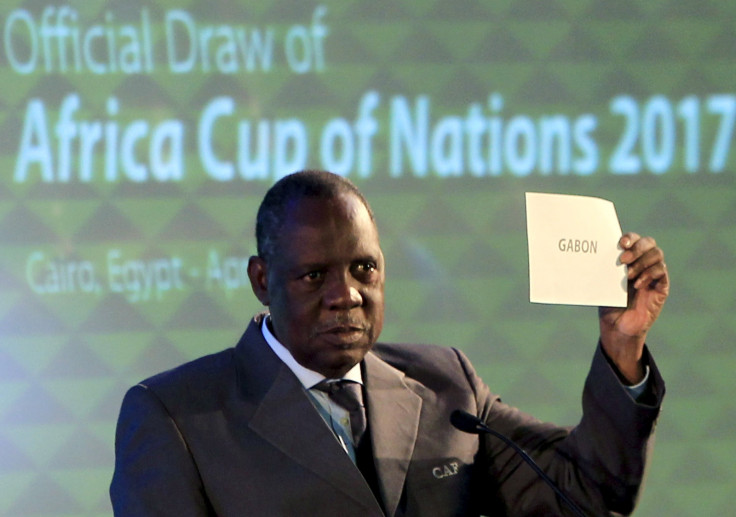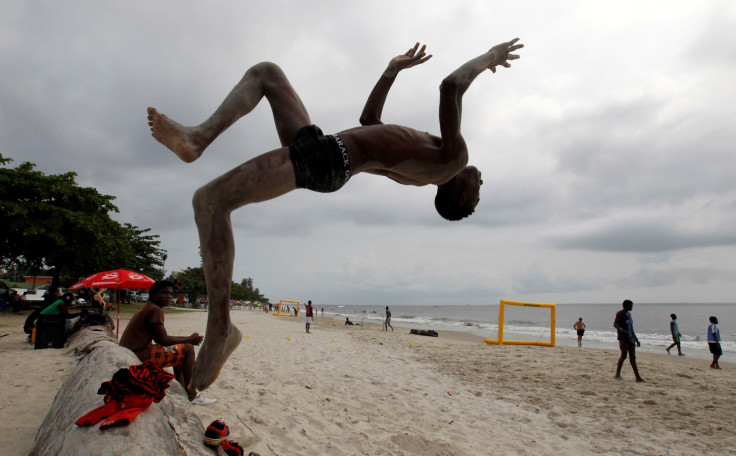5 fascinating facts about Africa Cup of Nations host Gabon
From its capital named after slaves to a president who loves rapping, IBTimes UK checks out peculiar facts about Gabon.

Just a day before the 31st edition of the Africa Cup of Nations kicks off in Gabon, the small central African state remains in the thick of a social and political crisis.
Leaders are yet to resolve the current political stalemate, which followed the West African nation's recent contested elections during which opposition leader Jean Ping claims he was cheated of victory. The gloomy climate is further compounded by the country's economic crisis, caused by the collapse in oil prices.
But as 16 African teams are about to begin their quest to be crowned the kings of the continent, IBTimes UK looks at five facts about Gabon you may not know.
Gabon is a former French colony
Prior to France's appropriation of today's Gabon, Bantu migrants, Portuguese explorers, alongside Dutch and English traders arrived and settled in the area between the 14th and 16th centuries. The Dutch, English and French soon settled in pre-colonial state known as Kingdom of Orungu (now-Gabon). As a centre of the slave trade in the 18th century, the Gabonese coast became a departing point for the transatlantic slave trade at the end of the century.
Mirroring the fall of the slave trade, the Orungu Kingdom's decline led to its disintegration by the mid-to-late 19th century. France regained control of some of the coastal region in 1839 and established a protectorate.
After France took full sovereignty over the remaining territory, Gabon became part of French Equatorial Africa - federation of French colonial possessions in Central Africa - in 1910. The federation also included the countries of Chad, the Central African Republic, Cameroon, the Republic of the Congo (Congo-Brazzaville). Gabon later gained independence in 1960.

Gabon's capital is named after freed slaves
The Gabonese capital, which will host the Cup of Nations' final on 5 February, got its name after the French navy captured a slave ship, named Elizia, in 1846.
The 52 freed slaves were released and by 1849 had resettled near the French mission station on the site of Libreville, which translates as "Free town".
Almost half of Gabon's population live in the capital
One of the most urbanised nations in mainland Africa, 87% of Gabon's population reside in urban areas, according to the UN's 2014 World Urbanisation Prospects.
While this striking figure is more than double the regional average (40%), National Geographic reports that an impressive 44% of Gabon's 1.38m population live in the capital, Libreville.
Gabon is a rapper's paradise
Hip-hop has been popular in the Central African region since the 1980s, and music in the tiny Gabonese nation has enabled youths to participate in the national social, political and economic discourse.
Rap culture is today omnipresent, as DJs and popular local radios including 104.5 Urban FM play both local and American hip-hop songs. One of Gabon's up and coming rappers, Amenem, is even named after American Grammy-winning rapper Eminem.
Even current President Ali Bongo (formerly Alain before he changed his first name to Ali after his conversion to Islam) released an album, and is known to appear on stage to perform among local rappers while on the campaign trail.
Before going into politics, in the footsteps of his father Omar Bongo, a pillar of the Françafrique and Gabon's president from 1968 to 2009, Ali Bongo released a funky album in 1977, often described as having a strong James Brown influence.
Gabon is a leader in marine resources conservation
In 2014, Gabon became the first Central African nation to protect its threatened if abundant marine life. During the world conservation summit, the World Parks Congress held in Sydney, Australia, President Bongo declared nearly a quarter of its territorial sea as off limits to commercial fishing.
Covering more than 18,000 square miles (over 46,000km²), the network of marine parks complemented an existing terrestrial protected area anchored by 13 national parks created in 2002.
© Copyright IBTimes 2025. All rights reserved.






















